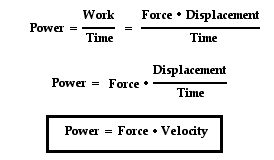To unlock success is the ability to unlock capital, to use your intellect and find the determination to keep going for economic emancipation. According to Perkins (2012, pg90) “growth depends on two processes: the accumulation of assets (such as capital, labor, and land), and making those assets more productive”. Most people lack the capital to develop in order to achieve true economic emancipation and hence success. As a result they never have any chance of achieving productivity with the little that they own.
Finding the Capital
Success is not unlocked by getting things for free, sometimes one has to create the key to fit the model to unlock the door to success. Capital is a necessity for any wealth generation but capital must not be limited to the traditional definitions. For example the definition on the investopedia site says that
2. The factories, machinery and equipment owned by a business and used in production.”
When locked to this definition then capital in most instances is hard to get and hence value is never achieved. Yet in all this there are alternative understandings of capital by simply studying what other people have achieved. Everyone possesses a common capital which they have the chance to use but in most cases it is not taught as capital hence most people fail to achieve any growth. Our economy books emphasize more on investment, machinery, cash, and other financial measures of capital but capital can be seen in a more captive format that is accessible to everyone. The more people are taught that financial measures are the capital that one needs the more their focus is switched off from the other important identifications of capital. So people in less industrialized nations then switch off their development because their only understanding of capital is financial which they need to borrow and when no one lends they give up.
We tend to forget that when we are born we are gifted with the greatest capital of all, Life and time. Everyone on the earth has the same value of life and time, though its length may differ its quality can be changed. The potential to change it exists. Power is defined as
Source : http://www.physicsclassroom.com/class/energy/Lesson-1/Power
Power is the rate at which work is done which is epitomized by the equation “Work/time”. The moment you are born you have two variables working for you, work and time. Your ability to use the time and your ability to work are your greatest assets for real power. Power is the secret to creating a momentum for success. On the other hand momentum is measured as Momentum = mass • velocity which in all respects can be generated in all sorts of ways in power.
Back to Capital.
Until you recognize time as capital you will waste it and never generate enough power from it. In order to generate power you must obviously know which work to put into it. Your life is also an investment of nature. You have been invested in through life, but to reap the rewards you must then be able to get a return on time. People like Strive Masiyiwa, Bill Gates, Steve Jobs have had a few things in common when it came to capital. Their success became a power which was measured over time, based of course on their rate of work. The problem that most people face is that there are not sure what to do with the time they have, they are not able to unlock success as a result. So, instead of thinking of time as an asset they think of it as a passing breath of life with only one destination, and in some cases time is not given much attention. Your time on earth is a capital of opportunity that is the greatest for wealth creation. Until you see your life as an opportunity you may never really do the things that matter.
The trouble with most people is that they do not value their time hence most cultures have a tendency to be late. Late for meetings, late for keeping their word, late to deliver their products to the client, late in doing what needs to be done; such that they never really reap the value of time. At the beginning of this article I mentioned a quote from Perkins that “growth depends on two processes: the accumulation of assets (such as capital, labor, and land), and making those assets more productive”, to be productive one needs to be efficient with the assets. Efficiency can only happen in time with specific assets, so if one is always late then they cannot compete on a global stage. The reason why MacDonald is successful is because it has mastered efficiency in time and thus in the same one hour that MacDonald’s can serve 100 people another restaurant in the developing world can serve 25 people. The result is that one restaurant will gain more working capital from revenue and reputation from the good service earned.
The understanding of time is what pushes the invention of technology. The smarter the technology the more efficient the productivity, hence the greater the development. The United States of America or Japan, just as an example, did not start off by having cars and technology, they started of with a problem statement, “How to be more productive within time that they had?” This problem statement is what pushed them to invent and create technology. Until you start measuring your rate of output you cannot compete on the global scale. This understanding of capital is missing in the text books.
The Intellect
There is no substitute for intelligence, not in terms of being smart but in terms of being aware. Availability is equal to opportunity, until you are aware you will not be focused. You need to know what is around you and what needs to be fixed or where solutions can be developed. Business is the provision of solutions but if one is not aware of the need for a solution then one cannot create a business. Bill Gates money is not the company Microsoft, his money is the idea of Microsoft. Microsoft the company is just a manifestation of a capital idea. Without Steve Jobs, Apple was a failure, until he came back with his ideas of harnessing ideas, then only then did Apple become a success. We spend so much time thinking of finance without thinking of base ideas to get us to success. When you have the capital idea then you must build the road to the destination.
A country can be given 15 billion dollars in capital but if their ideas are foolish and lack merit, that money will quickly be used up in things that do not last. So think of a person who wins a lottery of 1 million dollars but after 5 years is broke and filing for bankruptcy. Remember, we mentioned momentum as mass * velocity. Most people have the velocity in terms of circumstances but few lack the mass of knowledge. Knowledge on its own is a mass which when used right can create a momentum. So most countries receive aid to build and in their wisdom they build but what they build is not a good mass that can create the right momentum of success. Success is usually the result of one little idea. Facebook is a giant, but in essence it is just a webpage where people share their social pictures and posts, but today it is an advertising gold mine. Your intellect is the first place of unlocking your economic development. Until people are using their minds to use up their time for good value they may never realize true economic emancipation.
The art of Trying in Determination
No one climbs a ladder by reaching the top without stepping on the base. Every success must start with a climb of experience. Fifty dollars can quickly become 1 million dollars if used right. Momentum is only valuable if the 50 dollars is invested in the right time. When we lack the discipline to invest in processes and principles we then lose out on the possibility of reaching our destination of success. The true meaning of determination is wisdom, vision and patience. Until one attains the vision and its patience then unlocking success is only a dream. Every objective that exists, exists in time. Every goal that is scored is achieved over a distance of travel. If you want to achieve untold success then you must be willing to travel the distance that is needed to succeed.
For more principels of success we urge you to buy the book “The Five Principles of Programmed Success”
References:
Perkins, Dwight H. Economics of Development (Seventh International Student Edition), 7th Edition. W. W. Norton & Company, 20121106.
























+ There are no comments
Add yours